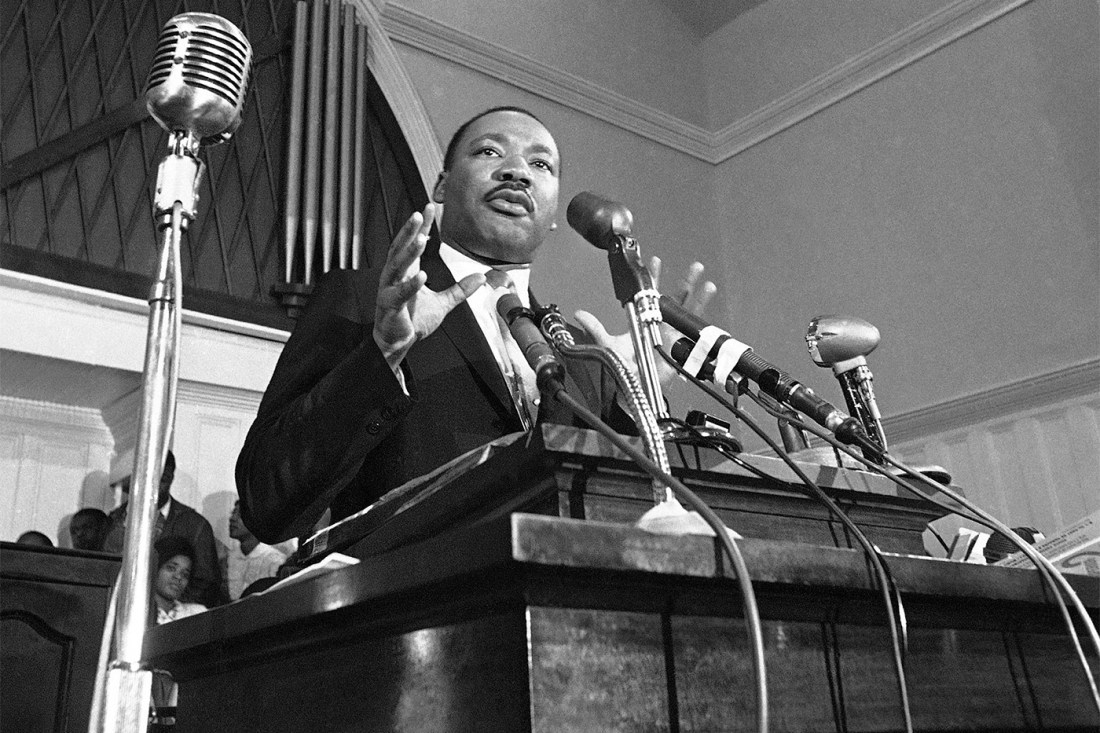MLK files reveal deep FBI surveillance and ‘rich human story,’ Northeastern historian says

The National Archives recently released records on the 1968 assassination of the Rev. Dr. Martin Luther King Jr., detailing years of intense government surveillance of the civil rights leader as well as leads from the investigation into his death.
Northeastern University historian Edward Miller says the more than 240,000 records will take a long time for historians to delve through; however, he sees the records as burnishing the image of King as a “titan” and moral leader, even among extreme pressure and surveillance from the FBI.
“This man was a courageous fighter for justice, an extraordinary human being and just a giant in terms of what he had to deal with and what he was up against,” says Miller, academic director of the social science division at the university’s College of Professional Studies. “Now we’re going to be able to see how intense that scrutiny was — a tremendous burden for one man to carry and he carried it with grace under extreme pressure.”
The files were released in accordance with a Jan. 23 executive order signed by President Donald Trump to declassify and release documents in connection with the assassinations of former President John F. Kennedy, former Senator Robert F. Kennedy and King.
Files related to President Kennedy’s Nov. 22, 1963, killing in Dallas were released in March, while files relating to Senator Kennedy’s June 5, 1968, assassination in Los Angeles were released in April.
Releasing the King files was not without controversy, however.
Members of the King family objected to the release and urged the public to view the records “within their full historical context.”
The family, which was given advance access to the files, has also long maintained that James Earl Ray, King’s convicted assassin, was solely responsible for the April 4, 1968, slaying of the civil rights leader.
Northeastern Global News spoke with Miller about the contents of the release, the value of the release for historians, and how to contextualize the information.
Comments have been lightly edited for brevity and clarity.

What is the main reveal for historians from this week’s release of the MLK files?
Much of it just confirms what we’ve known for years; that Dr. King was under intense surveillance by the FBI. What’s really powerful, I thought, was the scale of it. You have more than 240,000 pages covering things like wiretaps, memos, field reports, etc.
That’s a fascinating moment for historians because now we’re able to look back at the events in his life and in his last days. And we’re able to understand just how threatened the government felt towards his moral leadership. At the heart of it is the realization that our institutions don’t always act on the side of justice even when they believe they are.
So, if we already knew the main narrative concerning King revealed in the files, what can historians and students of history learn from the release?
It’s a chance for students and also all of us to take a look at the files and look at how government power works. That’s really what it comes down to: How does government power work? How does a federal bureaucracy work? How are public figures scrutinized during this period?
It’s not really just about King. It’s what happens when institutions view a man who’s fighting for justice as a threat — that’s something that we see throughout history in different forms.
Editor’s Picks
There’s been some controversy about the release. What’s important to note when looking at the files?
We have to look at this with honesty and care. King never claimed to be perfect. He had personal flaws, but those do not erase his courage and moral stature in the face of daily death threats and incessant invasive surveillance. If anything, it makes his courage all the more impressive. He’s one of my personal heroes. I have rarely encountered an historical figure who had such courage. He changed the world. He did. He changed the world. And he did so while carrying the full weight of surveillance and resistance. That’s the mark of fearlessness and a truly great leader.
That is really why what’s important to remember is why this material is gathered in the first place: some in power were not comfortable with what he was saying, with his call for justice. That said, the evidence still points to James Earl Ray as the lone shooter. Unnecessary surveillance and harassment are not evidence for conspiracy in a murder most foul. At the same time we can acknowledge human imperfection but also honor moral leadership. … We approach it with what the King family has suggested: with grace and compassion and empathy and the pursuit for truth.
Does this release change the narrative concerning King?
There’s really nothing in there that overturns the story that we already know and that we already teach as far as what I’ve seen so far. It just reinforces the cost of speaking truth to power.
It can add layers of detail, for instance, details about civil rights leader Jesse Jackson, Coretta Scott King (King’s wife) and Ralph Abernathy (King’s closest friend and adviser).
It richens the narrative. It makes King more human.











